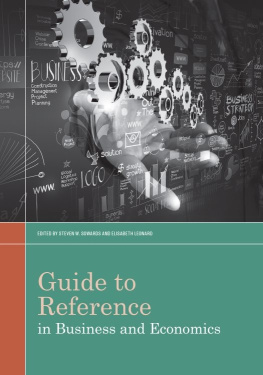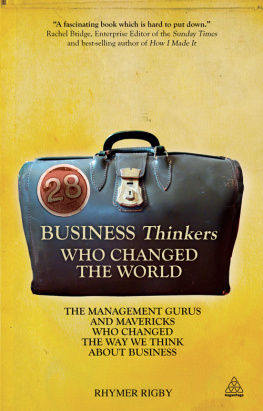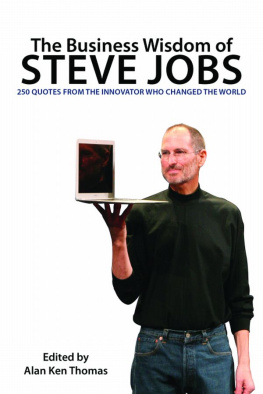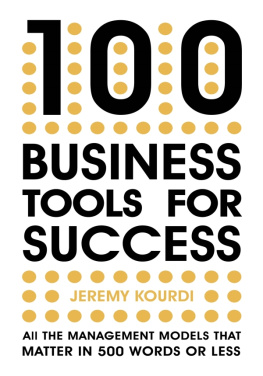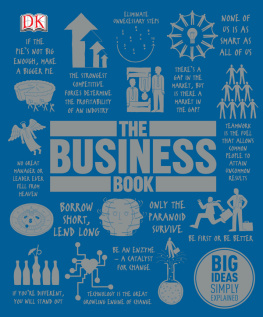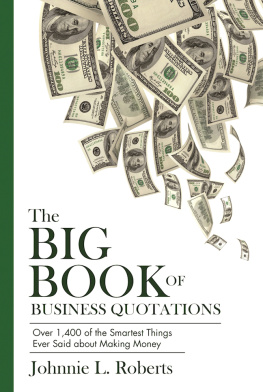Book of Business Quotations
OTHER ECONOMIST BOOKS
Guide to Analysing Companies
Guide to Business Modelling
Guide to Business Planning
Guide to Cash Management
Guide to Decision-Making
Guide to Economic Indicators
Guide to the European Union
Guide to Financial Management
Guide to Financial Markets
Guide to Hedge Funds
Guide to Investment Strategy
Guide to Management Ideas and Gurus
Guide to Managing Growth
Guide to Organisation Design
Guide to Project Management
Guide to Supply Chain Management
Numbers Guide
Style Guide
Book of Isms
Book of Obituaries
Brands and Branding
Business Consulting
Business Strategy
Buying Professional Services
The City
Coaching and Mentoring
Doing Business in China
Economics
Emerging Markets
Marketing
Megachange
Modern Warfare, Intelligence and Deterrence
Organisation Culture
Successful Strategy Execution
The World of Business
Directors: an AZ Guide
Economics: an AZ Guide
Investment: an AZ Guide
Negotiation: an AZ Guide
Pocket World in Figures
The Economist
Book of Business Quotations
Edited by Bill Ridgers
THE ECONOMIST IN ASSOCIATION WITH PROFILE BOOKS LTD
Published by Profile Books Ltd
3A Exmouth House, Pine Street, London EC1R 0JH
www.profilebooks.com
Copyright The Economist Newspaper Ltd, 2012
All rights reserved. Without limiting the rights under copyright reserved above, no part of this publication may be reproduced, stored in or introduced into a retrieval system, or transmitted, in any form or by any means (electronic, mechanical, photocopying, recording or otherwise), without the prior written permission of both the copyright owner and the publisher of this book.
The greatest care has been taken in compiling this book. However, no responsibility can be accepted by the publishers or compilers for the accuracy of the information presented.
Where opinion is expressed it is that of the author and does not necessarily coincide with the editorial views of The Economist Newspaper.
While every effort has been made to contact copyright-holders of material produced or cited in this book, in the case of those it has not been possible to contact successfully, the author and publishers will be glad to make amendments in further editions.
Designed by sue@lambledesign.demon.co.uk
Typeset in EcoType by MacGuru Ltd
info@macguru.org.uk
Printed in Great Britain by Clays, Bungay, Suffolk
A CIP catalogue record for this book is available from the British Library
Hardback ISBN: 978 1 84668 593 4
Ebook ISBN: 978 1 84765 817 3

| The paper this book is printed on is certified by the 1996 Forest Stewardship Council A.C. (FSC). It is ancient-forest friendly. The printer holds FSC chain of custody SGS-COC-2061 |
Contents
About this book
This book is not meant to represent an exhaustive list of business quotations. Rather it is a collection of quotations that the editor believes to be particularly pertinent, witty and enjoyable. Where possible they have been taken from the original source and this has been noted in the text. Some quotations have been widely attributed to their author but the original source could not be found; these have been left without sources. In rare cases where there is a reasonable chance that the quotation is apocryphal, this has been noted in the text as attributed.
Introduction
From the day that humans first learned to write, they have written about business. When archaeologists discovered Sumerian tablets dating from the 4th millennium BC, considered to be the first examples of the written word, they uncovered not musings on love, family or war, but a record of trade. No sooner had writing developed to encompass abstract thought than man was aphorising on the vagaries of commerce. Choose a job you love and you will never have to work a day in your life, wrote Confucius, a Chinese philosopher, in 500BC. It is a trend that has continued ever since. Two-and-a-half-thousand years later, a philosopher for a different age, Homer Simpson, was telling his colleagues at a nuclear power plant: If you dont like your job you dont strike. You just go in every day and do it really half-assed. Thats the American way.
Why do we find business quotations so compelling? There are several reasons. The first is aesthetic. In a world often thought of as cold and calculating, there is art to be found the pithy quotation that encapsulates a deeper truth, as the quotes from Confucius and Homer demonstrate. Even better if it is plain funny: If I was as rich as Rockefeller, said Ronnie Barker, a British comedian, Id be richer than Rockefeller, because Id do a bit of window cleaning on the side.
Then there is reflection, writing about business as an academic pursuit. From Francis Bacon to Karl Marx to Thomas Friedman, it is a noble tradition. Is there a better definition of capitalism than Joseph Schumpeters phrase creative destruction? Has anyone understood the role of the company better than Peter Drucker, when he said that there is only one definition of business purpose: to create a customer?
But we also have a desire to learn from the success of others. We think we can distil the philosophy of Warren Buffett, Henry Ford or Jack Welch in just a few of their well-chosen words. If we condense everything that made Steve Jobs great, we are left with just one simple sentence: Simple can be harder than complex: you have to work hard to get your thinking clean to make it simple.
Lastly, if we are honest, we read business quotations because we love a cutting comment and a good moan. Most of us will have to endure the drudgery of work, and it makes us feel better that we are not alone. When you grow up youll be put in a container called a cubicle. The bleak oppressiveness will warp your spine and destroy your capacity to feel joy. Luckily youll have a boss like me to motivate you with something called fear. So said Dilbert, a character in a comic strip, who can speak to our souls.
Nostalgia aint what it used to be
Given that 6,000 years have passed since that trailblazing Mesopotamian first picked up a stylus and etched his labour costs into a rock, we might ask whether the golden age of the business quotation has now passed. Businessmen, in general, have become more anodyne. The quotation hunter, you might imagine, pines for the heady days of the Mad Men. If we are to believe the glitzy drama, this was a time when an executives day was spent guzzling Scotch and, it seemed, spouting one memorable line after another. But, in fact, the businessmen of the 1950s and 1960s have left us with surprisingly few zingers. (Perhaps they were just too drunk to remember all the clever lines they came out with.)
A Scotch before noon is now frowned upon in most businesses. Much of the business world bows to 24-hour news and public-relations despots, who strangle interesting statements at birth for fear of causing offence and a slide in the share price. This has led to a depressing escalation in euphemism and management speak: the art of sounding as if you are saying something when you are not. Negative growth, explains the PR director, sounds more impressive than loss; rationalisation is more intellectually defensible than job cuts.
Next page



